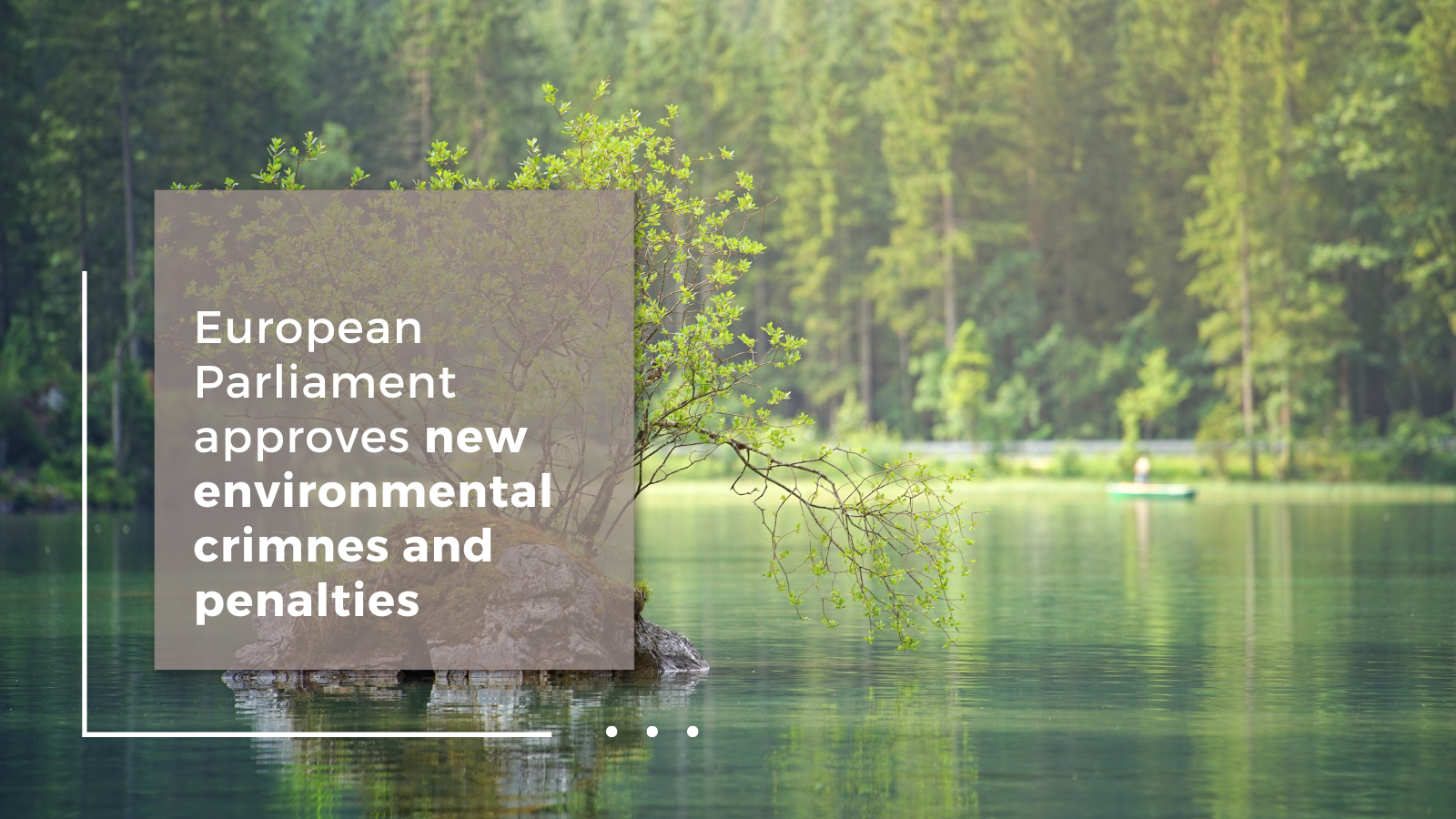
European Parliament approves new environmental crimes and penalties
In a global context where environmental awareness and care for the environment are at the top of political agendas, last Tuesday marked a significant milestone for Europe with the approval of a new regulation that increases the number of environmental offenses under European Union criminal law.
The urgency of protecting our planet from highly damaging practices leads to the imperative need to sanction and deter potential offenders who infringe on our natural environments. Due to the growing number of crimes against the environment, positioning environmental crime as the fourth largest criminal activity in the world, in addition to being one of the main sources of income for organized crime, safeguarding the health of our ecosystems has become an urgent necessity for the sake of a sustainable future for generations to come.
In this context, the European Parliament has taken a crucial step towards consolidating a legal March that reinforces accountability and ends impunity for those who undermine environmental integrity, thus underlining the importance of balancing our development model with the preservation of our natural environment. The new law establishes an updated list of environmental offenses including illegal trade in timber, depletion of water resources, serious infringements of EU chemicals legislation and pollution caused by ships. Similarly, it introduces the so-called “qualified crime” involving very serious destruction of an ecosystem, such as large-scale forest fires or widespread pollution of air, water and soil, comparable to the crime of ecocide.
Both individuals and company representatives can face prison sentences of five or ten years depending on the offense committed. In addition, this new law requires them to restore the environmental damage and will make them face fines of up to 5% of their annual worldwide turnover, or a fine of 24 or 40 million euros, depending on the nature of the offense.
This directive aims to harmonize sanctions against transboundary crimes at the European Union level and to prevent new environmental crimes by deterring potential offenders.
Thus, the approval of this new regulation by the European Parliament not only represents a commitment to environmental protection, but also a clear reminder that both individual and corporate responsibility play a crucial role in building a more sustainable future for all.
As we move toward a horizon where ecological awareness is intertwined with legislative decision-making, it is imperative that other regions of the planet continue to replicate this model, forging a united front in defense of our planet. Only through coordinated actions and decisive measures can we ensure a harmonious balance between human progress and the preservation of our natural wealth.
Carmen Coleto Martínez, FIBGAR Junior Project Manager.



